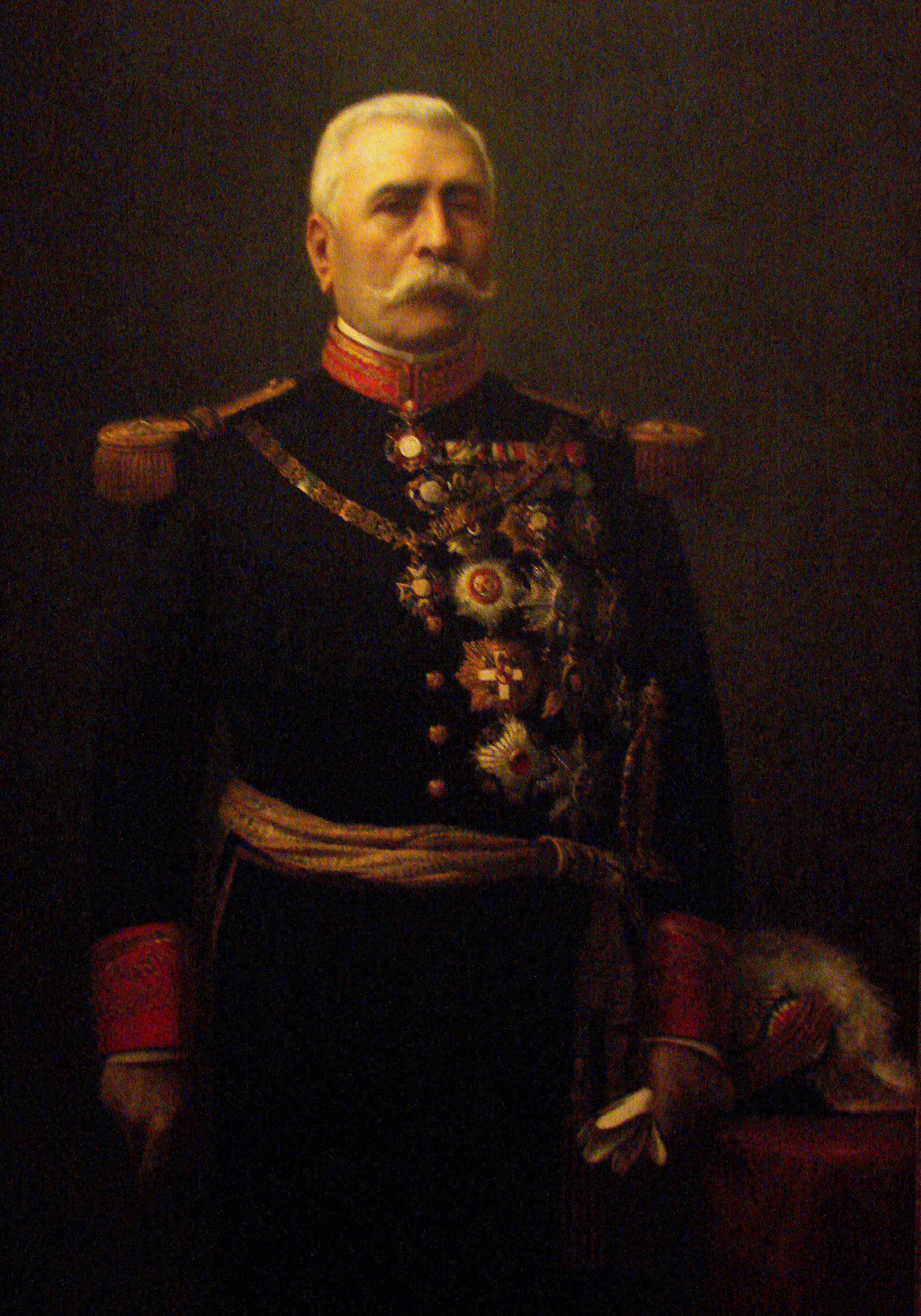José de la Cruz Porfirio Díaz Mori was a Mexican general and politician who served seven terms as President of Mexico, a total of three and a half decades, from 1876 to 1880 and from 1884 to 1911. A veteran of the War of the Reform and the French intervention in Mexico , Díaz rose to the rank of General, leading republican troops against the French-imposed rule of Emperor Maximilian. Seizing power in a coup in 1876, Díaz and his allies, a group of technocrats known as "Científicos", ruled Mexico for the next thirty-five years, a period known as the Porfiriato.
Díaz has always been a controversial figure in Mexican history; while the Porfirian regime brought stability after decades of conflict, it grew unpopular due to civil repression and political stagnation. His economic policies largely benefited his circle of allies as well as foreign investors, and helped a few wealthy estate-owning hacendados acquire huge areas of land, leaving rural campesinos unable to make a living. Likewise these estates were often deadly, resulting in the deaths of 600,000 workers in 1900 through the end of Diaz's rule. Despite public statements favoring a return to democracy and not running for office, Díaz reversed himself and ran again in 1910. His failure to institutionalize presidential succession, as he was by then 80 years old, triggered a political crisis between the Científicos and the followers of General Bernardo Reyes, allied with the military and with peripheral regions of Mexico. After Díaz declared himself the winner of an eighth term in office in 1910, his electoral opponent, Francisco I. Madero, issued a call for armed rebellion against Díaz, leading to the outbreak of the Mexican Revolution. After the Federal Army suffered a number of military defeats against Madero's forces, Díaz was forced to resign in May 1911 and went into exile in France, where he died four years later.
✵
15. September 1830 – 2. July 1915
